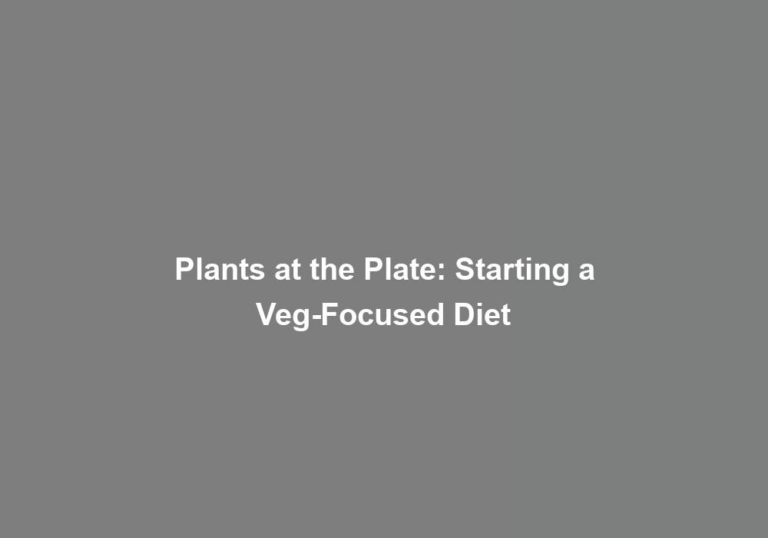Special Diets Decoded: Tailoring Nutrition to Your Needs
YouG??ve probably heard the phrase G??one size fits all,G?? but when it comes to nutrition, itG??s more like finding the perfect key for a lock. Your body is unique, and so are its needs. ThatG??s where special diets come in. Whether youG??re looking to boost energy, manage a health condition, or simply feel your best, tailoring your nutrition can make a world of difference. But with so many options out there, how do you know which one is right for you? Stick around to uncover the secrets of special diets and how they can be customized to fit your individual requirements.
Understanding Special Diets
Understanding special diets is essential for anyone looking to make informed dietary choices and accommodate specific health or lifestyle needs. Nutrition misconceptions and dietary restrictions often lead to confusion about what constitutes a healthy diet. ItG??s vital to recognize that different dietary needs exist, and what works for one person may not work for another. For instance, some individuals may have allergies or intolerances to certain foods, such as gluten or dairy, while others may choose to follow a vegetarian or vegan diet for ethical or health reasons. By understanding these specific dietary requirements, you can better support and empathize with those who have different nutritional needs.
Nutrition misconceptions can hinder our ability to understand the value of special diets. ItG??s common to hear conflicting information about various dietary approaches, which can make it challenging to discern fact from fiction. However, by staying informed and seeking reliable sources of information, you can gain a clearer understanding of the reasons behind different dietary choices. For instance, some people may choose to follow a low-carb diet to manage their blood sugar levels, while others may opt for a Mediterranean diet to support heart health. Recognizing the rationale behind these dietary decisions can foster a greater sense of understanding and inclusivity.
Benefits of Tailored Nutrition
Personalized nutrition offers a host of health advantages tailored to your specific needs, addressing individual dietary requirements and deficiencies. By targeting dietary improvements based on your unique nutritional profile, you can optimize your overall well-being and address specific health concerns. Research has shown that personalized nutrition can lead to better health outcomes and improved management of chronic conditions.
Personalized Health Advantages
Tailored nutrition offers numerous health advantages by catering to your specific dietary needs and optimizing your overall well-being. Personalized diets and individualized nutrition plans provide the following benefits:
-
Improved Digestion: By tailoring your diet to your specific needs, you can alleviate digestive issues and discomfort, promoting better gut health.
-
Optimized Energy Levels: Customizing your nutrition can ensure that you consume the right balance of macronutrients, leading to sustained energy levels throughout the day.
-
Enhanced Athletic Performance: Tailored nutrition can help athletes meet their unique dietary requirements, leading to improved endurance, strength, and recovery.
-
Better Disease Management: Individualized nutrition plans can support the management of chronic conditions such as diabetes, heart disease, and food allergies, promoting better health outcomes.
These personalized health advantages demonstrate the value of tailoring nutrition to your specific needs.
Targeted Dietary Improvements
Considering targeted dietary improvements can further enhance the benefits of tailoring your nutrition to meet your specific needs and optimize your overall well-being. Custom meal plans and dietary adjustments can address specific health concerns, such as managing weight, improving athletic performance, or managing chronic conditions. For instance, customizing your meal plan to include more lean protein and complex carbohydrates can aid in muscle recovery and energy levels for athletes. Similarly, adjusting your diet to include more fiber and nutrient-dense foods can assist in weight management and overall health. Furthermore, for individuals with conditions like diabetes or hypertension, personalized dietary adjustments, such as reducing sodium intake or controlling carbohydrate portions, can significantly impact their health outcomes. By making targeted dietary improvements, you can effectively address your unique nutritional requirements and improve your overall quality of life.
Exploring the Keto Diet
So, youG??ve heard about the keto diet and youG??re curious to learn more. LetG??s start by understanding the basics of the keto diet, including what it is and how it works. Then, weG??ll explore the proven benefits of following a keto lifestyle and provide practical meal ideas to help you get started on your keto journey.
Keto Basics
Exploring the Keto Diet involves understanding the principles of a high-fat, low-carbohydrate eating plan and its potential impact on your bodyG??s metabolism and energy levels. When following the keto diet, itG??s essential to focus on keto meal prep to ensure you have convenient, healthy options readily available. Consider incorporating these keto-friendly snack options into your meal planning to help you stay on track and maintain energy levels throughout the day:
- Sliced avocado with sea salt and a squeeze of lemon.
- Hard-boiled eggs with a sprinkle of salt and pepper.
- A handful of mixed nuts such as almonds, walnuts, or macadamia nuts.
- Celery sticks with cream cheese or almond butter.
Benefits of Keto
After understanding the principles of the high-fat, low-carbohydrate eating plan in the Keto Basics, itG??s important to recognize the potential benefits of the keto diet on your bodyG??s metabolism and energy levels. When you adopt a ketogenic lifestyle, your body enters a state called ketosis. This metabolic state can lead to increased fat burning, which may aid in weight loss. Additionally, ketosis benefits your brain function and mental clarity, as ketones serve as a source of energy for the brain. Many people also report feeling more sustained energy levels throughout the day, as the keto diet helps stabilize blood sugar levels. Moreover, some studies suggest that a ketogenic diet may have potential benefits for certain medical conditions, such as epilepsy and type 2 diabetes. Embracing a ketogenic lifestyle can bring about several positive changes in your overall well-being.
Keto Meal Ideas
Consider incorporating these keto meal ideas into your high-fat, low-carb eating plan to support your bodyG??s metabolic state of ketosis and maintain sustained energy levels throughout the day.
-
Avocado and Bacon Salad: Combine fresh avocado, crispy bacon, cherry tomatoes, and mixed greens. Drizzle with olive oil and balsamic vinegar for a satisfying, low-carb meal.
-
Grilled Chicken with Pesto: Grill chicken breasts and serve with a generous dollop of homemade basil pesto. Pair with saut+?ed spinach or zucchini noodles for a delicious keto-friendly dinner.
-
Cauliflower Crust Pizza: Create a pizza crust using cauliflower, almond flour, and mozzarella. Top with sugar-free marinara, cheese, and your favorite low-carb toppings for a guilt-free pizza night.
-
Coconut Curry Shrimp: Cook shrimp in a creamy coconut milk and curry sauce. Serve over cauliflower rice for a flavorful, low-carb option packed with healthy fats and protein. Enjoy these keto friendly recipes for a satisfying and nourishing meal plan.
Unpacking the Paleo Diet
Understanding the Paleo diet involves examining its guiding principles and the potential impact it may have on your overall health and wellness. The Paleo diet, also known as the caveman diet, is based on the evolutionary nutrition theory. This theory asserts that our bodies are best adapted to the foods our ancestors consumed during the Paleolithic era, before the advent of agriculture. One common misconception about the Paleo diet is that itG??s solely about meat consumption. While it does emphasize high-quality lean meats, it also encourages the intake of fruits, vegetables, nuts, seeds, and healthy fats. The key is to focus on whole, unprocessed foods and to eliminate grains, legumes, dairy, and refined sugars.
Embracing Gluten-Free Eating
If youG??re considering embracing gluten-free eating, itG??s important to understand the potential impact it may have on your overall health and wellness. Gluten is a protein found in wheat, rye, and barley, and some individuals choose to eliminate it from their diet due to gluten intolerance or celiac disease. Here are some practical tips and insights to help you navigate gluten-free eating:
-
Explore Gluten-Free Alternatives: Incorporate naturally gluten-free foods such as quinoa, buckwheat, and rice into your meals. These grains can be excellent substitutes for gluten-containing grains and offer a variety of essential nutrients.
-
Read Labels and Ingredients: When shopping for gluten-free products, carefully read labels to ensure they donG??t contain hidden sources of gluten, such as modified food starch, malt extract, or hydrolyzed vegetable protein.
-
Experiment with Gluten-Free Baking: Use alternative flours like almond flour, coconut flour, or chickpea flour to bake delicious gluten-free treats. Experiment with different recipes to find the best gluten-free alternatives for your favorite baked goods.
-
Master Gluten-Free Cooking Tips: Invest in kitchen tools such as a separate toaster, cutting board, and cooking utensils to prevent cross-contamination. Additionally, learn about safe food preparation techniques to avoid accidental gluten exposure.
Customizing Your Nutrition Plan
Customize your nutrition plan by consulting with a registered dietitian or nutritionist to address your specific dietary needs and health goals. They can help you create a personalized meal plan that takes into account your food preferences, lifestyle, and any medical conditions. Meal prep is a practical strategy to ensure that you have healthy options readily available, making it easier to stick to your nutrition plan. By preparing meals and snacks in advance, you can control portion sizes and choose nutritious ingredients, reducing the temptation to opt for less healthy choices when youG??re hungry.
Portion control is an essential aspect of customizing your nutrition plan. ItG??s not just about what you eat, but also how much you eat. Measuring your food, using smaller plates, and being mindful of serving sizes can help you manage your calorie intake. This doesnG??t mean you have to feel deprived; itG??s about finding a balance that works for you. Your dietitian or nutritionist can guide you on appropriate portion sizes for different food groups and help you develop a healthy relationship with food.
Customizing your nutrition plan also involves considering your specific nutritional needs. For example, if you have dietary restrictions or specific health concerns, your meal plan can be tailored to accommodate these requirements while still ensuring that you get all the essential nutrients. Working with a professional can give you the confidence and support you need to make sustainable changes to your eating habits.
Conclusion
YouG??ve learned how to decode special diets and tailor your nutrition to fit your needs. Imagine a personalized nutrition plan that gives you the energy and vitality you need to thrive. Whether itG??s the keto diet, paleo diet, or gluten-free eating, there are options to customize your meals and snacks for optimal health. By understanding the benefits of these diets, you can make informed choices to support your well-being. So, get ready to embark on a journey to better health through personalized nutrition.







